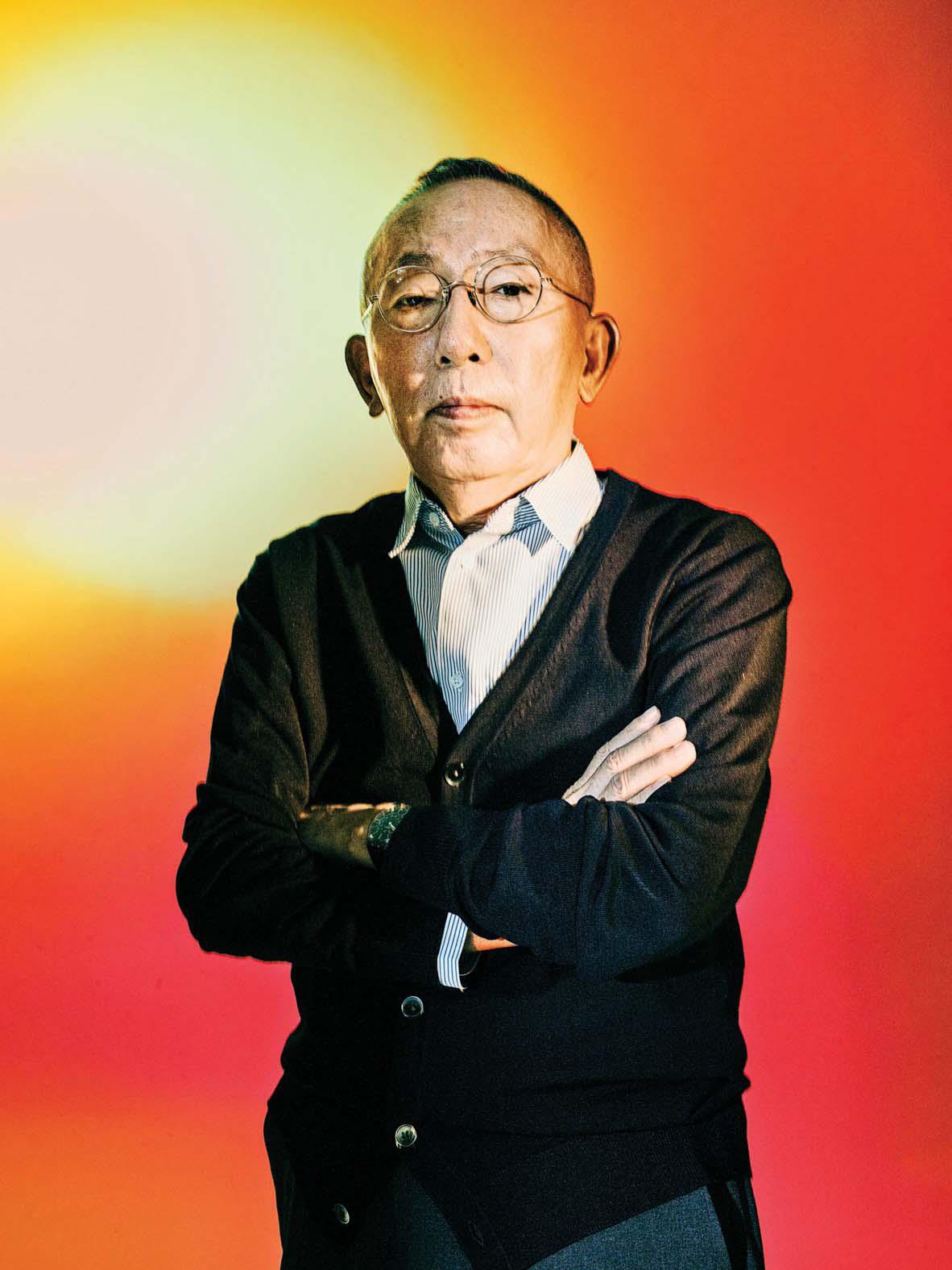REBEL WITH A CAUSE

THE PREVIOUS EVENING'S STORM CLOUDS HAVE CLEARED to bathe Tokyo in crisp sunshine. Tadashi Yanai, Japan's richest man and the founder of $73 billion apparel empire Uniqlo, is perusing the art books that line his wood-paneled office, which, like most of his firm's cavernous headquarters, commands sweeping vistas of the Sumida River. Finally, he retrieves one he believes will be of particular interest: a tome of historical photographs curated by TIME that features John F. Kennedy on the cover in a deep conversation with his brother Bobby during the Cuban missile crisis.
"I particularly like his saying 'Ask not what your country can do for you ask what you can do for your country'," says Yanai, 74, carefully replacing the book in its stand. "That's what I want to talk about today."
On the face of it, Yanai has many reasons to feel upbeat. Fast Retailing the holding company that operates Uniqlo and eight other brands he established out of his father's tailoring business - saw operating profits of $2.54 billion for the year to Aug. 31, up 28.2% year over year. The firm's share price, meanwhile, has soared 31% so far this year, propelling Yanai's personal wealth to $36 billion. He also has bold plans to finally conquer the U.S. by nearly tripling Uniqlo's existing 72 North American outlets by 2027.
The rosy outlook radiates across Japan, where a perennially sluggish economy is now predicted to grow faster than those of the U.S. and Europe, its bourse riding a three-decade high. Moreover, in response to the Ukraine war, Japan has pushed through a transformative increase in defense spending and in May welcomed world leaders for a G-7 summit in Hiroshima, galvanizing a resurgent leadership role for the world's No. 3 economy. "The alliance between Japan and the United States is unprecedentedly strong and deep," Prime Minister Fumio Kishida told TIME in late April.
This story is from the {{IssueName}} edition of {{MagazineName}}.
Start your 7-day Magzter GOLD free trial to access thousands of curated premium stories, and 9,500+ magazines and newspapers.
Already a subscriber ? Sign In
This story is from the {{IssueName}} edition of {{MagazineName}}.
Start your 7-day Magzter GOLD free trial to access thousands of curated premium stories, and 9,500+ magazines and newspapers.
Already a subscriber? Sign In
Documentary revisits ping-pong days of 1971
In 1971 the American table tennis player Glenn Cowan boarded the wrong bus during the world championships in Nagoya, Japan. He missed the U.S. team's bus and got on the next one, only to find himself on the Chinese team’s bus.
5 ways to swim safely this summer
THAT GLISTENING SWIMMING hole might look-and feelrefreshing on a sweltering day.

Scrambling To Survive
FILIPINO FISHING FAMILIES CONFRONT THE WORLD'S CHANGING RELATIONSHIP WITH THE SEA
Health Matters
AS CONGRESS EYES SWEEPING cuts to Medicaid, the health care program for low-income adults that serves about 20% of people living in the U.S., a new study has a sharp conclusion: cuts to Medicaid will cost lives.

Why are ‘100-year storms’ happening so often?
CLIMATE CHANGE IS LEADING NOT ONLY TO DROUGHTS, wildfires, and extreme weather. It's also leading to oxymorons—at least when it comes to what are known as 100-year storms, floods, and other events.

Mike Birbiglia The comedian on his fourth Netflix special The Good Life, the rise of right-wing comics, and being funny vs. being famous
What would you say people like about you?

Q&A With Diva Amo
The marine biologist working to protect our oceans from deep-sea mining

Sebastião Salgado
SEBASTIÃO SALGADO, 81, WHO DIED IN PARIS ON MAY 23, TOOK photographs that were too beautiful to look away from.

Approaching the end, with deliberate steps
STORIES ABOUT THE MEANING OF LIFE TEND to work at cross-purposes with the job of actually living it, particularly when they pedal hard to activate the tear ducts.

Valuing Our Oceans
It's time for a shift in economics
